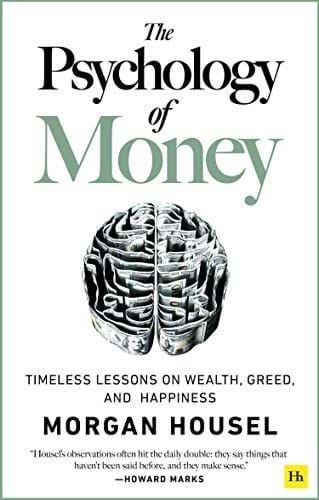My New Go-To Book Recommendation
At least several times a year, I will get asked the same question by family, friends, co-workers, industry peers, clients, etc:
What investing or finance book(s) would you recommend?
And while I certainly have my starting lineup of “go-to” options, I would often have to couch my specific response in the context of who was asking me and what their level of investment knowledge or experience was.
No more.
Now, regardless of whether it’s my mother, a recent college graduate, or a hedge fund manager, my immediate response will be the same:

I have been waiting YEARS for Morgan Housel to write his first book. I’ve read just about every word he has written, from his early days at The Motley Fool, to his more recent work at Collaborative Fund. I’ve joked that someone could make a killing printing off all of Morgan’s articles and blog posts, stapling them together, slapping a cover around it, and selling it on Amazon. Fortunately, Morgan did us one better with this unique collection of narratives and anecdotes that tackle the human side of investing.
As the book title implies, Morgan approaches the vastly complex world of finance through the intersection of history and psychology. An incredibly gifted storyteller, Morgan highlights not only on his own experiences with money, but those of well-known (and lesser-known) figures as well. He deftly weaves together the concepts of fear, greed, risk, and luck and the critical role they play in our investing and personal finance outcomes.
Morgan also challenges this notion we have that all rich people are wealthy, despite those being two distinct states of being. As Morgan states, “the highest form of wealth is the ability to wake up every morning and say, ‘I can do whatever I want today.'”
In my opinion, The Psychology of Money is the Floyd Mayweather of finance books. While Floyd was not the biggest fighter, often competing in the lightweight or welterweight division, many consider him to be the greatest pound-for-pound boxer of all time. Morgan’s book weighs in at a slim 242 pages, but hoo-boy does it pack a punch. I gave up on my highlighter after two chapters knowing that if I kept up at that pace the entirety of the book would be covered in yellow ink.
As easy a read as this book is, I know I’ll be coming back to it time and time again – not because the takeaways are difficult to grasp, but because they are so worth revisiting. We’re not even 3/4 of the way through 2020, but I think I am safe in saying we have an early contender for finance book of the decade!
Morgan, in his own words, on writing a book:
Book: The Psychology of Money (Collaborative Fund)
Wall Street Journal Review:
Do You Know the Difference Between Being Rich and Being Wealthy? (The Wall Street Journal)
What are you waiting for? Go buy it:
The Psychology of Money: Timeless lessons on wealth, greed, and happiness (Amazon)
Get on the List!
Sign up to receive the latest insights from Phil Huber directly to your inbox.

